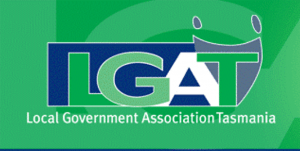 As part of the parliamentary pokies inquiry that’s underway in Tasmania, the Local Government Association of Tasmania (LGAT) is proposing the suicide and depression rates of all areas should be assessed before any new pokies venues are approved in that region.
As part of the parliamentary pokies inquiry that’s underway in Tasmania, the Local Government Association of Tasmania (LGAT) is proposing the suicide and depression rates of all areas should be assessed before any new pokies venues are approved in that region.
The new proposal is a result of extensive research and consultation that has been done with local councils to determine how electronic poker machines be licensed and regulated in Tasmania from 2023 onwards. Public hearings and submissions from individuals and community groups have been welcomed.
As part of Tasmania’s pokies reform, the government has already proposed the area within a 2km radius of any new pokies venue would need to be considered as part of a community interests assessment. Factors for consideration included the age, gender, income and education statistics of the local community. The LGAT wants to build on these statistics to include crime, suicide and depression rates.
Chief executive officer of LGAT, Dr Katrena Stephenson, said, “I think there’s clear research to show that they can be factors [resulting from poker machine addiction]. They are either comorbidities or causative — there’s certainly a relationship.
“Like all social policy, it’s complex and multifaceted.”
LGAT’s suggestion is one of 39 submissions lodged to the state government by community groups about how the community interests test should be applied to proposed new pokies sites. LGAT’s proposal has the support of Anglicare and the Tasmanian Council of Social Service.
Dr Stephenson said the effects of pokies on the Glenorchy region strongly influenced LGAT’s submission. The northern suburbs area is considered one of Australia’s most disadvantaged, while also reporting an incredibly high amount of pokies expenditure. Some anti-pokies campaigners have argued the pokies are responsible for the demise of Glenorchy from the vibrant place it once was.
Pat Caplice from grassroots activist group Rein in the Pokies said, “I know Glenorchy and I know what sort of town it was when I grew up and started my early adulthood there. I saw the effect when pokies were introduced in 1997 … every pub I grew up in is now a pokies palace, intended not as a social area, (but) to rake money out of people.”
Dr Stephenson said that while “local government is a broad church” and that the pokies reform was not a consensus view among the 29 state councils “all councils agree there needs to be robust policy [to assess new machine applications and give people a voice].”
The results of the community interest test regulations are expected to be finalised by mid-2017.